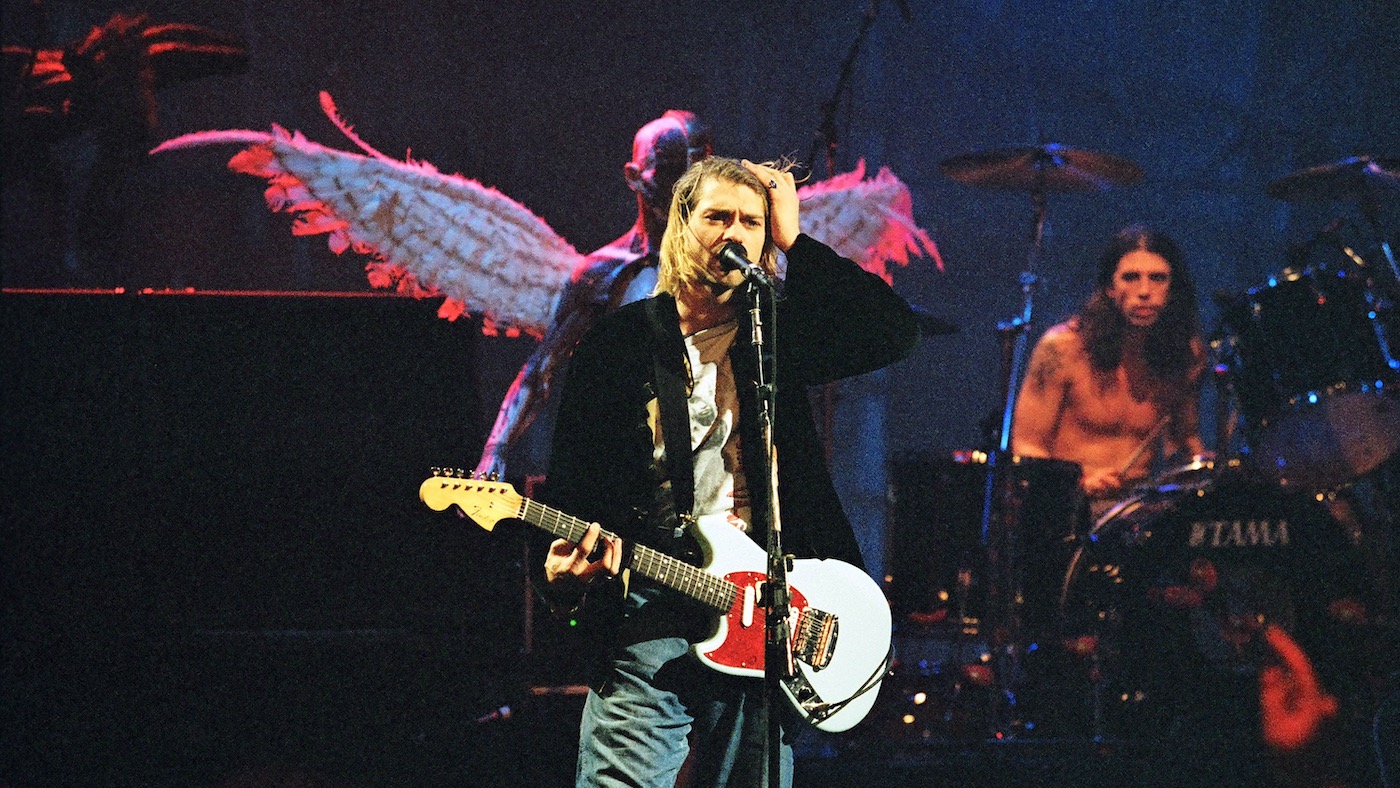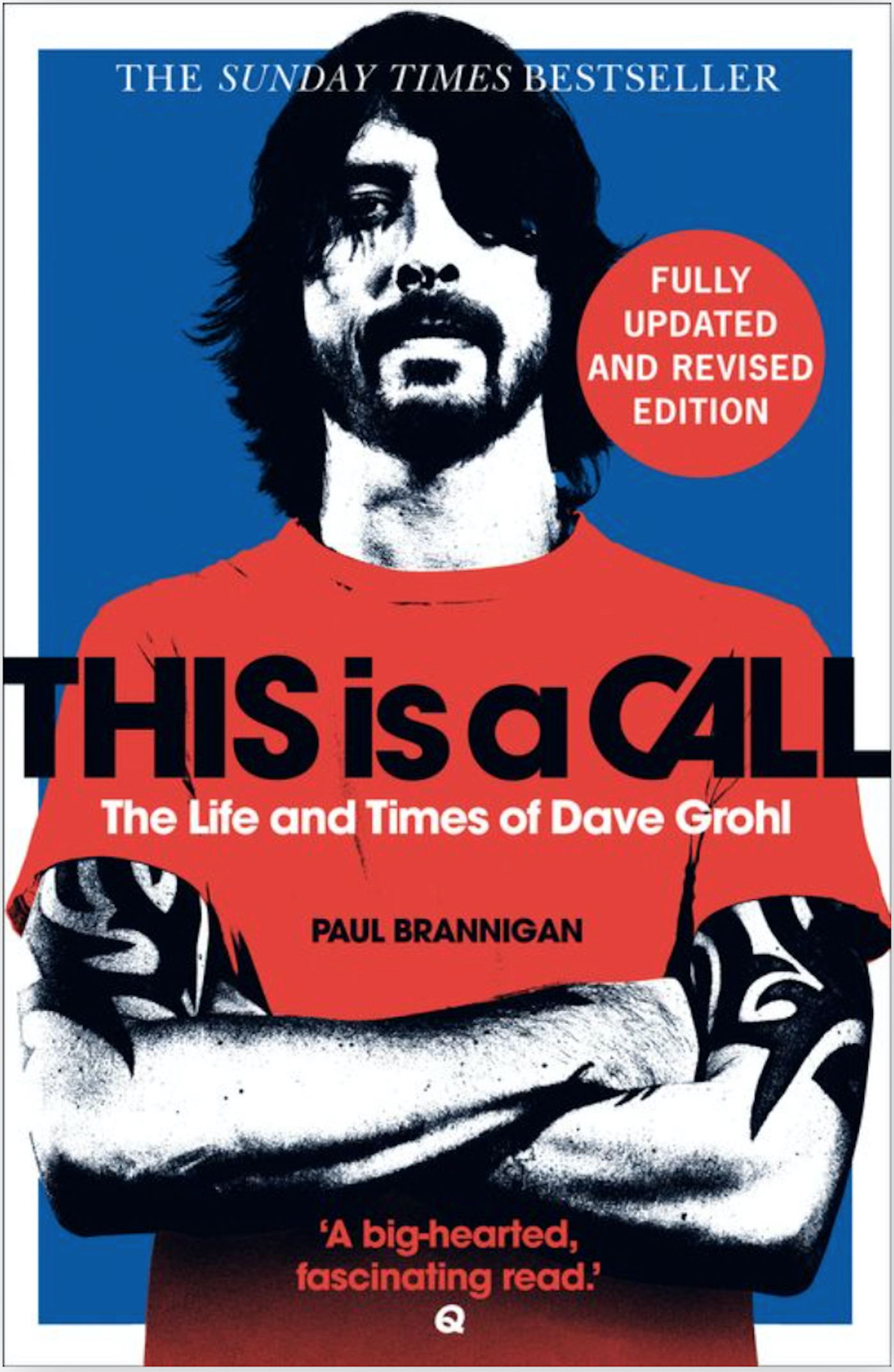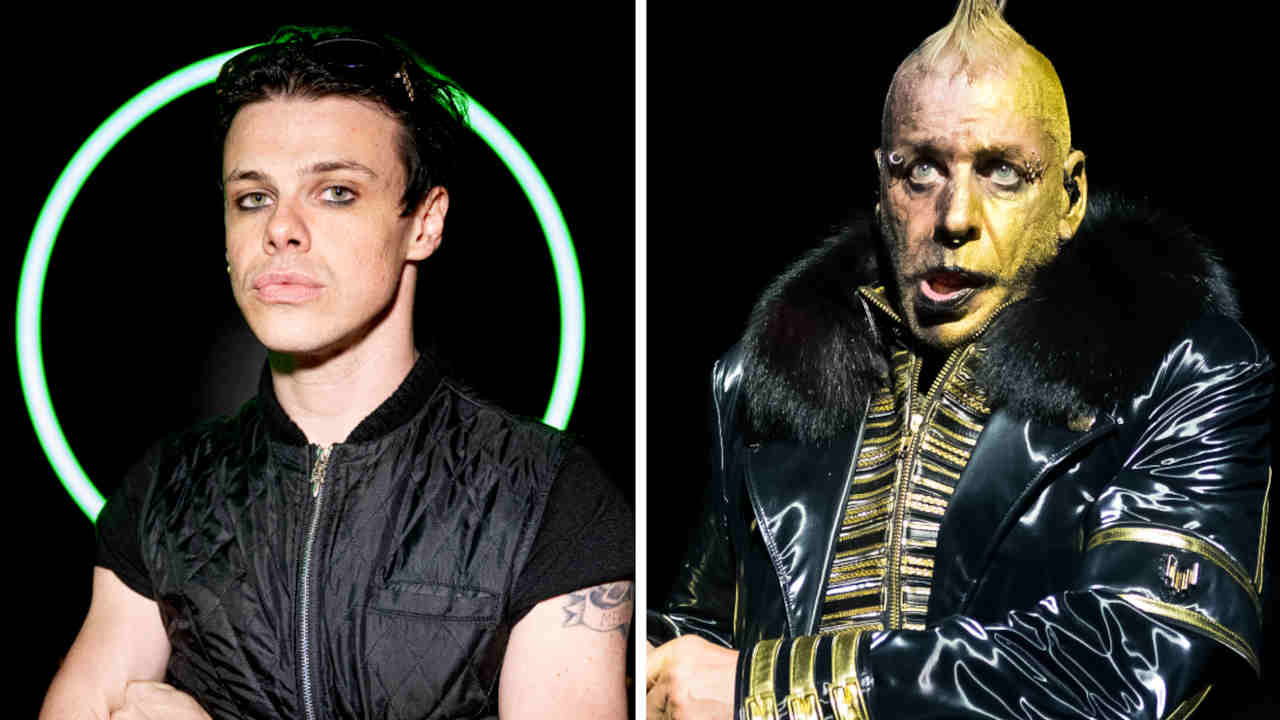‘Listening to Nirvana’s In Utero makes my skin crawl’: Read an extract from newly updated Dave Grohl book This Is A Call

A Sunday Times best-seller in the UK upon its original publication in 2011, the Dave Grohl biography This Is A Call is being reissued as a fully-revised-and-updated 10th anniversary edition on September 2, and is available to buy now. In this extract, Grohl tells writer Paul Brannigan about his conflicted thoughts on Nirvana’s legacy and their swansong In Utero, admitting “it’s a fucking dark album…”

In the summer of 2013, with Foo Fighters still on hiatus, Paul McCartney invited Grohl, Krist Novoselic and Pat Smear to guest onstage with him at the Seattle date of his Out There! tour. On the afternoon of July 19, ahead of the gig, the Foo Fighters frontman decided to take his daughters Violet and Harper to the Nirvana: Taking Punk To The Masses exhibition at the city’s Experience Music Project.
‘I hadn't seen it, so I took the kids in thinking they'd be so proud. And they were just like, [here Grohl affects an impatient, bored child’s voice] “Daddy, can we go?” They could give a fuck, they didn't care at all.’
‘But it’s funny,’ Grohl said, ‘as I was walking through the exhibit, I saw people slowly making their way through the hall, reading every card and looking at every piece: people were genuinely interested in, like, an old T-shirt of mine, or my dusty old drum set. There was so much interest in Nirvana and I couldn't believe it, I was so blown away, like, Wow. I was looking at everyone really take this stuff in, like they were in the middle of our world, and it was the first time I ever thought of our - quote unquote - “legacy”. I don't have the same perspective, because I was there, and it was me, and it's a real memory.’
Grohl and I were speaking less than two weeks after his trip to Seattle, for a Rolling Stone Australia cover story on Nirvana’s In Utero, which was being given a lavish 20th anniversary reissue, with the original album expanded to include contemporaneous single B-sides, embryonic demos, including Grohl‘s original December 1990 demo of Marigold, Steve Albini’s contentious original mixes of All Apologies and Heart-Shaped Box, live tracks, and a new Albini mix of the album, mastered at London’s Abbey Road studios.
‘I think with the reissue people will hear things they've never heard,’ Grohl predicted, ‘and maybe learn a little more about the band, or understand the band a little bit more.’
‘That album captured a moment in time for the band,’ he said, ‘and it's definitely an accurate representation of the time...which was dark. It's a fucking dark album. I don't like listening to that record. It's a weird one for me. I hear songs on the radio every once in a while, and I like the sonic difference of hearing All Apologies or Heart-Shaped Box come on in the middle of a bunch of compressed, Pro-Tooled modern rock radio music, because it stands out, but lyrically and conceptually it's not something that I like to revisit too often. But maybe what I love the most about that album is the sound of urgency, and the sound of the three of us in a room playing.’
The latest news, features and interviews direct to your inbox, from the global home of alternative music.
‘Nevermind and In Utero are two totally different albums,’ Grohl continued. ‘Nevermind was intentional, as much as any revisionists might say it was a contrived version of Nirvana, it wasn’t: we went down there to make that record, we rehearsed hours and hours and hours, day after day, to get to Nevermind. But In Utero was so different. There was no laboured process, it was just… bleurgh...it just came out, like a purge, and it was so pure and natural.’
‘And both of those things I'm very proud of, the structured exercise of making an album like Nevermind versus the reckless purge of making an album like In Utero. If you can make one of those albums in your lifetime, you're lucky: we got two in a row, and that's awesome.’
‘Obviously In Utero was a direct response to the success and sound of Nevermind,’ he explained. ‘We just pushed ourselves in the other direction, like, “Oh really, that's what you like? Well, here's what we're going to fucking do now!” But it is a hard album for me to listen to from front to back. Because it's so real, and because it's such an accurate representation of the band at the time, it brings back other memories, it kinda makes my skin crawl.’
‘It's funny,’ Grohl concluded, ‘I spend a lot of my time planning things to come, I don't spend a lot of time thinking back on things I've done. But In Utero, man, what a trip.’
In the autumn of 2013, Grohl was not the only one weighing up Nirvana’s legacy. In mid-October it was revealed that the Washington state grunge trio were among the nominees eligible for induction into the Rock And Roll Hall Of Fame, 25 years having elapsed since the release of the Love Buzz single: other first-time nominees included Linda Ronstadt, Hall & Oates and The Zombies, while N.W.A., Kiss and Deep Purple featured among the previously nominated acts being reassessed for inclusion. For a second successive year, the public were invited to vote on the shortlist, after which the five acts receiving the most votes were to be tallied alongside ballots cast by the Hall Of Fame’s voting committee.
On December 16, Nirvana’s induction was confirmed.
‘For once, I'm speechless,’ admitted Grohl. ‘From the basements, to the dingy clubs, to the broken down vans, to... the Rock and Roll Hall of Fame. I’d like to thank the committee not only for this induction, but also for recognising Nirvana for what we were: pure rock and roll. Most of all, thank you to all of the fans that have supported rock and roll throughout the years, and to Kurt and Krist, without whom I would not be here today.’
‘Nirvana damn well deserve to be in the Hall of Fame,’ says Sub Pop’s Bruce Pavitt. ‘They were an incredibly important band: more than just artists and entertainers, they were revolutionaries in a way. They are very historically significant. They proved that an outsider band could challenge the system on its own terms and that does not happen very often. They stayed true to their art and kept their integrity and their outspokeness and I think that’s why they still resonate so strongly with people.’

Louder is the ultimate resource for alternative music coverage and the home of iconic rock brands Classic Rock, Metal Hammer and Prog. With a combined reach of over five million followers across social media, we're the largest and most influential alternative music website in the world.

